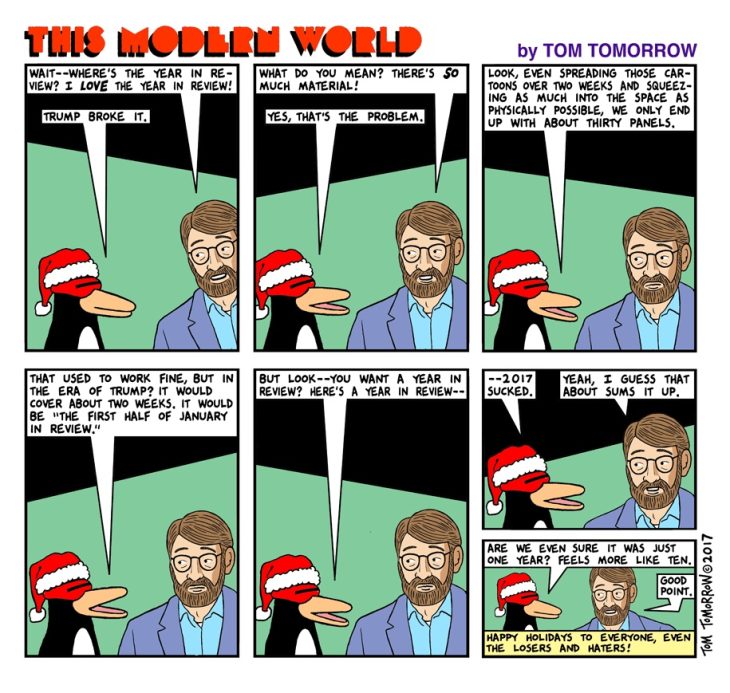… or whatever you want to call this time of year – also my first actually thought-out, direct-to-Facebook post in several months. I’m sure this one oughta win me lotsa new friends..
*
This is what I’m thinking about in the early evening of a cold Sunday in December:
First of all, this thing we call “Christmas” starts out as a religious holiday and as such has no business being on the “official” calendar of a nation that honors that other tradition called “the First Amendment.” But never mind, it’s a nice tradition (even if it does come in the dead of winter, and for some reason coincides with the not only the worst weather of the year but the worst traffic as well…).
Coming as it does on a Monday this year, I’m thinking the tradition could use an updating. Call it “XmasOS2017”:
For starters, the date is entirely arbitrary since nobody really knows when Jesus or Emmanuel or whatever his actual name was was actually born. It could just have well been in March or August. The only reason a date in December was chosen – back in something like the 4th century – was to co-opt the Pagan traditions around the Winter Solstice.
So how about – instead of a religious holiday on Dec 25, we declare a religiously-neutral holiday for friends-and-family gatherings and gift exchanges on the Monday following the last weekend in December? Then every year we’d have a three-day weekend at the end of the year.
I’m trying to think what to call it. How about…oh, I know…
FESTIVUS!
(damn, why didn’t <I> think of that…?)
OK, that’s my contribution to the occasion. Now, please don’t lecture me with “…. but this is a Christian Nation!” Oy, don’t start me…
And in case your wondering, Thomas Jefferson pretty much agrees.



















